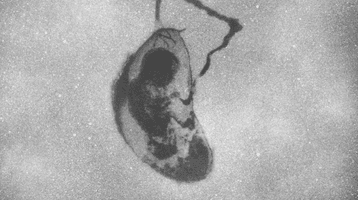Arwa Aburawa and Turab Shah selected for Brent Archives Residency
News Story
Film London and Brent Museum and Archives are excited to announce that Arwa Aburawa and Turab Shah have been selected for a moving image residency as part of the Becoming Brent programme.
Becoming Brent is organised in the centenary year of the British Empire Exhibition, a grand celebration of imperial power that was held in Wembley Park in 1924-1925. Over the next two years, the borough will be given a chance to pause, reflect and redress the legacy of the British Empire through a series of newly commissioned artworks and community events.
Arwa Aburawa and Turab Shah will be researching a new project which explores the material remnants and cultural memory of the British Empire Exhibition. Following the demolition of the original Wembley Stadium (formerly known as Empire Stadium) in 2003, rubble from the site was transferred to Northala Fields, a new park in Ealing. Now buried beneath the park’s landscaped hills, the rubble forms a sound barrier against the nearby motorway. By examining the physical and archival traces of the British Empire Exhibition, the artists hope to reveal how colonial histories have been hidden, forgotten or masked.
The new work will be presented as part of the Becoming Brent programme in mid-2025. Film London will be supporting the project through the combined expertise of the teams in the Film London Artists’ Moving Image Network (FLAMIN) and London’s Screen Archives (LSA), who will support the research, development and production of Aburawa and Shah’s project. It is hoped that this artist residency will encourage people to donate material to Brent Museum and Archives to increase representation of the borough’s diverse community within the collections.

Portrait of Arwa Aburawa and Turab Shah. Photo by Melissa Arras.
“We are very pleased to have been selected for this artist residency with Film London and Brent Archives. The residency gives us the support to continue researching the ongoing legacies of colonisation with a focus on the centenary year of the British Empire Exhibition which took place in Wembley. As artists who work in Brent and who have a deep connection to the borough, this is a history which we have long held an interest in. We are excited to use this opportunity to find ways to explore and problematise these histories together with our community.”
– Arwa Aburawa and Turab Shah

West African Village, British Empire Exhibition, Wembley (1924). British Empire Exhibition Collection, Brent Museum and Archives.
Arwa Aburawa and Turab Shah are a directing duo dedicated to exploring race, migration, the environment and other ongoing legacies of colonialism through film. Together they also co-founded Other Cinemas, a project based in Brent which is dedicated to supporting Black and non-white communities through free film screenings and a free, year-long film school.
Work by Arwa Aburawa and Turab Shah has been exhibited at LUX, Nottingham Contemporary, Mosaic Rooms, Framer Framed (NL), Humber Street Gallery, Phillida Reid Gallery and as part of the Brent Biennial in 2022. Festival screenings have included CPH:DOX, Dokufest, Muslim International Film Festival, and Blackstar, where they received the award for Best Short Documentary in 2023. Screenings of their work have taken place at venues including Camden Arts Centre, Serpentine Galleries, BAFTA, and at the National Gallery of Art in Washington D.C.

Arwa Aburawa and Turab Shah, And still, it remains (2023), film still. Courtesy of the artists.
A partnership between Brent Museum & Archives, assisted by The National Lottery Heritage Fund, and Film London through Film London Artists’ Moving Image Network (FLAMIN) with the support of Arts Council England, and London’s Screen Archives (LSA).



